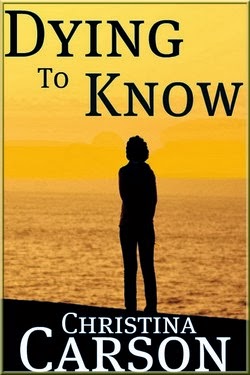By Christina Carson
Lin Yutang, a contemporary Chinese writer/philosopher, one
of the first to become familiar with the ways of the Western world, wrote that
if he wanted a toilet he’d buy American Standard because they work or if he
required a tunnel through a mountain, he’d hire an American drilling company
for their tunnels actually meet in the middle of the mountain, but if he wanted
philosophy, he would turn to the East, for to him Chinese philosophy was more
representative of life than that of Western philosophy, thus more useful.
Chinese philosophy can appear unsophisticated to a Westerner, its point being primarily to direct people to peace and harmony while recognizing how immaturely we can behave. Whereas Western philosophers, according to Lin Yutang,
are people who dive to the bottom of the sea, glory in their profundity but remain
in serious danger of downing; they can get so tangled in their ideas.
You see the ancient Chinese language is a conceptual
language meaning one that requires the user to conceive or intuit objects of
thought. From a western standpoint, we might call it spacious and free-wheeling
in that it doesn't demand users to march in straight lines to the rhythm of
grammar or tie everything up in time and relationship. It is less like a strict
parent and more like a mellow grandmother whose experience has shown her just
how much sense children actually have. It is truly the philosophy that can
accommodate the seeming conundrum of life – that of being bound up in human
form, while pitted against the vastness, the abstraction, the infiniteness of the
cosmos.
Our western language, on the other hand, is perceptual. We
get our taste of the world through our senses and let our mind interpret that input
as fact. We then arrange that information in straight grammatical lines and rigidly
specified patterns of subject-object, time and relationships. That’s why for
us, when we first sit down to read the classic work of Chinese philosophy, the Tao Te Ching, we read it either like
basic rules to live by or something so abstract and tenuous that it eludes us.
The other day, Bert, my husband, found yet another
translation of the Tao Te Ching. We
have many, but we are always curious. This one by Jonathan Star is a definitive edition by a Westerner who has worked for years to appreciate the Chinese orientation
so that his translation would not impair the power and mystical spirit of this
timeless work. It’s a beautiful translation and now in my 6th decade
the Tao Te Ching is beginning to
share its wisdom with me.
We could have lived without modern toilets and drilling
through mountains, but I agree with the rest of what Lin Yutang suggested. We
can no longer live with any philosophy that doesn't clearly point us toward peace
and harmony.
Tao Te Ching Episode 9 (Jonathan Star)
Grabbing and stuffing—
there
is no end to it
Sharpen a blade too much
and its edge will
soon be lost
Fill a house with gold and jade
and no one can protect it
and no one can protect it
Puff yourself with honor and pride
and no one can save you from a fall
Complete the task at hand
and no one can save you from a fall
Complete the task at hand
Be selfless in your actions
This is the way of Heaven
This is the way of Heaven.
This is the way of Heaven
This is the way of Heaven.






